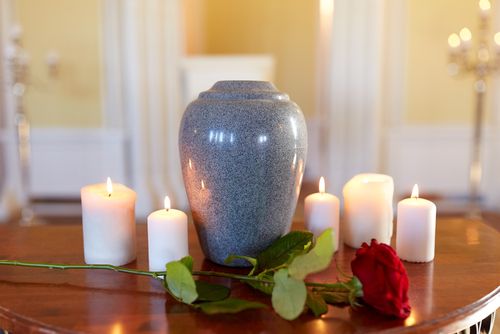 Exploring what happens when we die is central to any spiritual belief system. While the concept of death is not always a welcome consideration, reckoning with the idea of mortality can actually be quite healthy. Doing so can even open the door to a life that is more fulfilling and stress-free. When it comes to exploring the end of our life cycle, there is often a preoccupation with what happens to our souls and conscious minds. Of course, there's no way for us to truly answer the question of what awaits us beyond the physical world. However, we do know quite a bit about what happens to our physical bodies, and when the time comes, we generally expect to be buried.
Exploring what happens when we die is central to any spiritual belief system. While the concept of death is not always a welcome consideration, reckoning with the idea of mortality can actually be quite healthy. Doing so can even open the door to a life that is more fulfilling and stress-free. When it comes to exploring the end of our life cycle, there is often a preoccupation with what happens to our souls and conscious minds. Of course, there's no way for us to truly answer the question of what awaits us beyond the physical world. However, we do know quite a bit about what happens to our physical bodies, and when the time comes, we generally expect to be buried.
Internment in a cemetery or tomb is one of the oldest methods of caring for the remains of those who have passed on. In today's world, though, there is growing evidence to suggest that people are turning to other means of handling their earthly remains. There are a number of factors driving the interest in alternatives to burial.
Economics
Statistics from the National Funeral Directors Association indicate that cremation has exploded since the 1960s, and the rate at which Americans choose cremation as an option is only expected to rise. There are several reasons behind this trend, but the experts agree that there is an unmistakable economic factor. Since wages remain stagnant when compared to the cost of living, many families find traditional funeral expenses to be out of their reach. As such, cremation has emerged as an alternative to burial that is both affordable and dignified. Cremation avoids the cost of burial plots, headstones, and funeral home expenses and can allow loved ones to keep the remains of the departed.
Sustainability
Traditional burial practices come with several environmental drawbacks, the most obvious of which is land scarcity. The need for more burial plots decreases the available land for farming, green energy, and affordable housing. Secondly, the chemicals that are used in the embalming process carry the risk of exposing ecosystems to contaminants. Finally, in order for the casket industry to keep up with demand, more trees have to be destroyed each year. As people become more environmentally conscious, traditional burials may prove to be less and less appealing.
It is worth noting that cremation also carries environmental drawbacks. This realization has given rise to alternatives like alkaline hydrolysis. Also known as water cremation, this chemical process breaks the body down until only the bones remain.
Changing Spiritual Practices
Another trend driving the shift from traditional burial is an expansion of spiritual belief systems. While this is not exclusively the case, there is a strong relationship between traditional burial and the Christian tradition. As new belief systems work their way into the modern imagination, there is an increased willingness to explore alternatives to burial.
Practicality
While traditional burials have long been held as the standard, there are realities about the modern world that make it less attractive for some. As families become more spread out, arranging a final resting place can make the grieving process harder by adding additional stress and frustration. The force of increasing urbanization also limits the options that many families have for burial in their immediate vicinity.
Choice
For many, forgoing a traditional burial is simply a personal preference. Someone who takes the time to consider how their remains will be handled has acknowledged their mortality in a healthy way. They've also alleviated a burden on their loved ones by specifying how they'd like their remains to be handled. Most importantly, though, they've demonstrated an ability to let go. For our time on this earth, practicing the act of letting go is what makes living worthwhile.